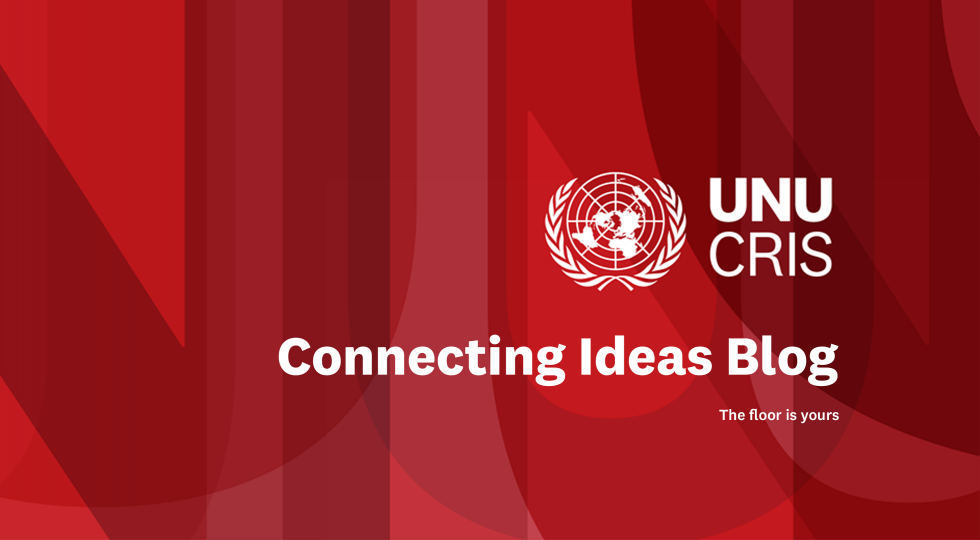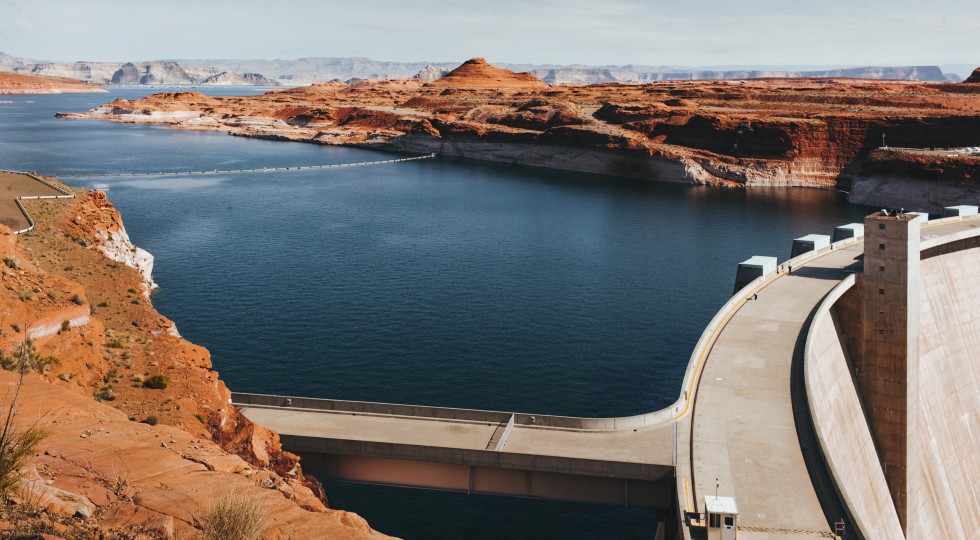The EU’s Water Diplomacy – Rebalancing Securitization Trends to Deliver on SDG 6

Professor in the EU International Relations and Diplomacy Studies Department of the College of Europe, Bruges, and Associate Research Fellow at UNU-CRIS
PhD researcher at the Department of Political and Social Sciences of the European University Institute
09 February 2024 | #24.03 | The views expressed in this post are those of the author(s) and may not reflect those of UNU-CRIS.
The need to protect water bodies and mitigate the effects of human activity on freshwater resources has been identified as a key challenge by the international community. At the global level, since 2015, it has been enshrined in the United Nations (UN) Sustainable Development Goal (SDG) 6 on clean water and sanitation. At the regional level in Europe, the European Union (EU) has taken a leading role in the water policy of its member states ever since the agreement on a Water Framework Directive (WFD) in 2000. This domestic water policy was subsequently complemented by EU external water activities focussed on water management and ‘water for development’ in the EU’s neighbourhood and the developing world. Yet, as of 2013, the EU has articulated a novel vision for 'water diplomacy' built around an understanding of water as either a source of conflict or a tool for cooperation. This evolution reflects a broader global trend where water scarcity and management are increasingly perceived through the lens of geopolitics and, hence, ‘securitized’. While this securitization of water resources may bring additional vital attention to the importance of water matters, it raises the question of whether the reactive focus on water as a subject of geopolitical struggle diverts resources and attention from investing in the prevention of water-related challenges, notably by delivering on SDG 6.
Tracing the Evolution of EU Water Diplomacy
The EU’s journey in water diplomacy began through a focus on the developmental and regional aspects of water management. This phase saw policies like the EU Water Initiative (in conjunction with the UN)improving water management in Eastern Europe and Central Asia to help countries in the region achieve millennium development goal targets. Water was also mainstreamed into development programming relating to other regions of the world. The EU's external action on water during this period was significantly influenced by the intra-EU precedent for comprehensive transboundary water management set by the WFD. The WFD laid the foundation for the EU's external water action, combining environmental protection with economic incentives for sustainable water management.
With the establishment of the European External Action Service (EEAS) in 2010, the EU's approach to water diplomacy underwent a significant shift. The 'geopolitical awakening' of the EU, catalysed by tensions over water resources in regions like the Nile Basin and the Mekong, strengthened the argument for a securitised understanding of water. The EEAS's involvement was paramount as it helped draft a new strategy for EU water diplomacy with a focus on peace mediation and water conflict resolution over developmental considerations, adopted in 2013 by the EU’s Foreign Affairs Council.
This new direction was subsequently reinforced in 2018 by more detailed Council conclusions operationalising the EU’s new securitised approach. Alongside this securitised approach to water, however, international and domestic political developments would lead to a new synthesis in the EU’s water diplomacy strategy. Key among these were the late 2015 adoption of both the SDGs and the Paris Agreement, as well as the opening of the UNECE Water Convention to all UN members in 2016. They sparked a heightened global focus on the intersection of climate change and water management. Furthermore, the 2017 New European Consensus on Development, which enshrined human rights as the main driver of EU development policy (‘human rights-based approach’), re-energised the development community within the EU in relation to water.
These developments, the Covid-19 pandemic, and the need to prepare for the 2023 UN Water conference subsequently helped reinvigorate a large constituency of advocates for water development to improve sanitation and health. Together with the perception of a lack of any tangible success of the securitised water diplomacy approach among partners, they increased pressure on the EU to re-align its approach with the expectations of the international community. Consequently, the EU’s (Development) Council issued, in November 2021, a third (and so far final) strategy document on water in its external action where the dual goals of water security and sustainable development coexist.

Contemporary EU Water Diplomacy: Between Securitization and Sustainable Development
Despite the EU’s geopolitical awakening, its approach to the security dimensions of water has been more observational than proactive. The EU's role in the Nile Basin Initiative is a case in point where it has taken a backstage to African Union-led talks. In the context of the conflict in Ukraine, the destruction of water infrastructure has prompted outrage and condemnation from the EU, but it has not translated into a distinct or robust (water-specific) diplomatic reaction. Similarly, in the recent hostilities between Israel and Gaza, the EU's response in ensuring that Israel re-opened water access to Gaza was overshadowed by the more assertive role of the United States.
These instances point to a broader trend in EU water diplomacy: while there is recognition of the importance of water as a geopolitical issue, the EU's actions have not consistently matched this awareness. The emphasis on securitization of water resources in EU policy rhetoric therefore does not translate into regular proactive engagement in international water-related security issues.
On the contrary, to counterbalance this cautious approach on the security dimensions of water conflicts, if the EU wants to be perceived as a relevant global player on water, it is imperative it re-invest its efforts into the other aspects of its external water action, most notably its contribution to SDG 6.
Towards an Effective EU Water Diplomacy: Refocusing on its Domestic Experience to Attain SDG 6
The evolution of EU water diplomacy suggests that its strength lies in its ability to improve the lives of people through development and to protect water as a natural resource. Based on its domestic water policy experience with the WFD aimed at promoting environmental protection, the EU may be better able to effectively tie water to considerations surrounding economic development and environmental sustainability rather than security issues. Concretely, this re-focus on the link between water and socio-economic development and environmental protection concerns could take three forms:
- Strengthen partnerships for sustainable economic development by mainstreaming water scarcity considerations into aspects of EU external economic engagement. Most notably, water matters should feature prominently in the Trade and Sustainable Development chapters of any future EU free trade agreements. Moreover, to consider the effect of its trade and economic activity on water use in third countries, especially in countries where economic output is focused on agriculture and water is already scarce, the EU could take inspiration from its recent policies aimed at avoiding deforestation abroad.
- Prioritise investment in water infrastructure and strategic development with a view to environmental protection. The EU’s developmental understanding of water as vital for health and sanitation should be complemented by an explicit focus on environmental protection that transcends the mere promotion of multilateral environmental agreements. Water-related development policy should not merely treat water as a ‘production factor’ needed for socio-economic development, but as a natural resource in need of protection. Infrastructure investment should therefore focus on guaranteeing both water quantity and quality, in line with SDG targets 6.3 and 6.6.
- Mainstream the use of the technological and economic resources of its domestic sector in its development policy, taking inspiration from regional initiatives like the EU Water Initiative, to help alleviate water stress in the developing world. Such partnerships – having already been proven to be successful in Eastern Europe and Central Asia – would enable the transfer of water management technologies and help further innovations in water treatment, conservation, and recycling in regions prone to water scarcity. This would, in turn, enable more rapid infrastructure development in partner countries and reduce their dependence on EU assistance in the medium term to achieve SDG 6 in a preventive rather than reactive manner.
Overall, while expanding its scope to aspects of geopolitics may have been a timely move, EU water diplomacy can only prove its relevance if it delivers. Focussing on its own core strengths and the intersection between the promotion of socio-economic development and environmental protection may hence be the most promising action to undertake. It implies privileging investment into the above set of concrete measures that reflect the growing relevance of water while contributing to SDG 6.
